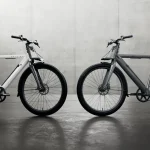By Thomas J. Ryan
As expected, Newell Brands Inc. is putting the winter sports brands it obtained via its acquisition of Jarden Corp. up for sale, including the iconic K2, Marker and Volkl brands.
Ski brands Line, Full Tilt, Madshus and Backcounty Access (under the K2 umbrella) and Dalbello (under Volkl) are also on the sales block, as well as athletic brand Zoot Sports, cycling apparel brand Squadra and the remainder of K2 Sports, which includes its in-line skates and sports accessories business.
Soon after the deal was reached with Jarden, some analysts predicted that Newell would soon sell off the winter sports brands, suggesting that the diversified conglomerate had little interest in the winter seasonality of the business.
Newell officials would only say that the decision to sell the winter sports businesses, resulted from “part of a recently completed strategic review of Newell Brands’ portfolio.”
And while Newell plans to sell the winter sports brands, it emphasized that it “has — and will continue to have — a strong Outdoor & Recreation division,” which will establish a new hub in Chicago for Coleman, Contigo, Marmot and others. “We look forward to Chicago becoming a major talent hub and epicenter of innovation for Newell Brands,” company officials said.
Newell will also continue to own Abu Garcia, Berkley and Shakespeare fishing brands; and Rawlings baseball, basketball and softball game-related product lines. Other smaller brands in the Outdoor & Recreation segment that are also purportedly keepers, include: Campingaz, ExOfficio, Fenwick, Greys, Gulp!, Hardy, Invicta, Jostens, Mitchell, Neff, Penn, Stearns, Stren and Trilene.
$1.5 Billion For Sale
After it completed the acquisition of Jarden in April, Newell said it planned to exit product lines with annual sales of $250 million to $300 million over next two to three years, although the brands or segments affected weren’t identified at the time. The pending sales are part of a major realignment at Newell that will consolidate its existing 32 business units to 16 operating divisions.
In all, Newell said it plans to put about 10 percent of the portfolio up for sale. Beyond the sale list of active-lifestyle brands, Newell plans to sell the vast majority of its tools segment; its heaters, humidifiers and fans businesses and its consumer-storage container brands. The total 2015 net sales of the businesses held for sale are approximately $1.5 billion, including about $100 million of previously announced exits or assets held for sale.
Newell said the sale processes are underway and it hopes to complete the divestiture of the assets held for sale within the first half of 2017. Proceeds from the sale of any brands will be primarily used to accelerate debt pay down and creating a platform for future acquisitions that strengthen and scale the company’s core businesses.
For Sale Or Bust?
At Barclay’s Global Consumer Staples Conference in early September, Michael Polk, Newell’s CEO, said Newell may discard some businesses if buyers aren’t found.
“Ideally I would like to sell these assets versus simply walking away from them,” Polk told investors. “Some of them are the kinds of businesses that would be difficult to sell and therefore, we should just shut down because they create no value for you and they are a distraction for us.”
Officials clarified, October 7, the the above option did not apply to its winter sports brands for sale.
“We do not plan to shut these businesses down, but rather intend to sell them to a buyer at a full and fair value, officials said. “We are confident that we will achieve a successful sale of these category-leading businesses to an owner who shares our interest in unlocking their full potential.”
During the conference, however, Polk clearly had his focus on the road ahead.
“We are going to focus our energy against the big opportunities and we are going to minimize the distractions,” said Polk, noting that the company has already invested in research on Coleman’s brand equity and growth potential. “We’re going to follow the money with respect to the choices we make and the actions we take.”
The overall reorganization will shift the company “from a holding company to an operating company” with a greater focus on accelerating growth at its remaining brands, according to a statement. Besides simplifying its operating structures by consolidating its existing 32 business units to 16 operating divisions, Newell will create a new global enterprise-wide e-commerce division.
“Newell Brands’ new strategic plan establishes a clear set of investment priorities, a new organization design for the company and a sharp set of portfolio choices that will focus our resources on the businesses with the greatest potential for growth and value creation,” said Polk in a statement. “We will drive growth acceleration over time through more effective and scaled commercial operations, increased investment in our brands and capabilities and the delivery of bigger, better innovation across a broader set of categories. We will simultaneously expand margins through significant cost synergies and other savings related to the combination of Newell Rubbermaid and Jarden and other cost focused initiatives.”
Added Mark Tarchetti, Newell’s president, “The choices we are making will strengthen the underlying growth and performance of our most strategic businesses and over time enable us to scale our core categories through external development.”
Newell restated its goal of achieving the company’s stated objective of a leverage ratio of 3 to 3.5 times EBITDA. At a recent investor conference, the company announced that it expects to deliver $500 million in cost synergies by the end of 2018. It said the for-sale announcement will not impact its 2016 core sales or normalized EPS guidance. More details are expected during the company’s quarterly report, scheduled for late October.
Photo courtesy K2 Sports
















